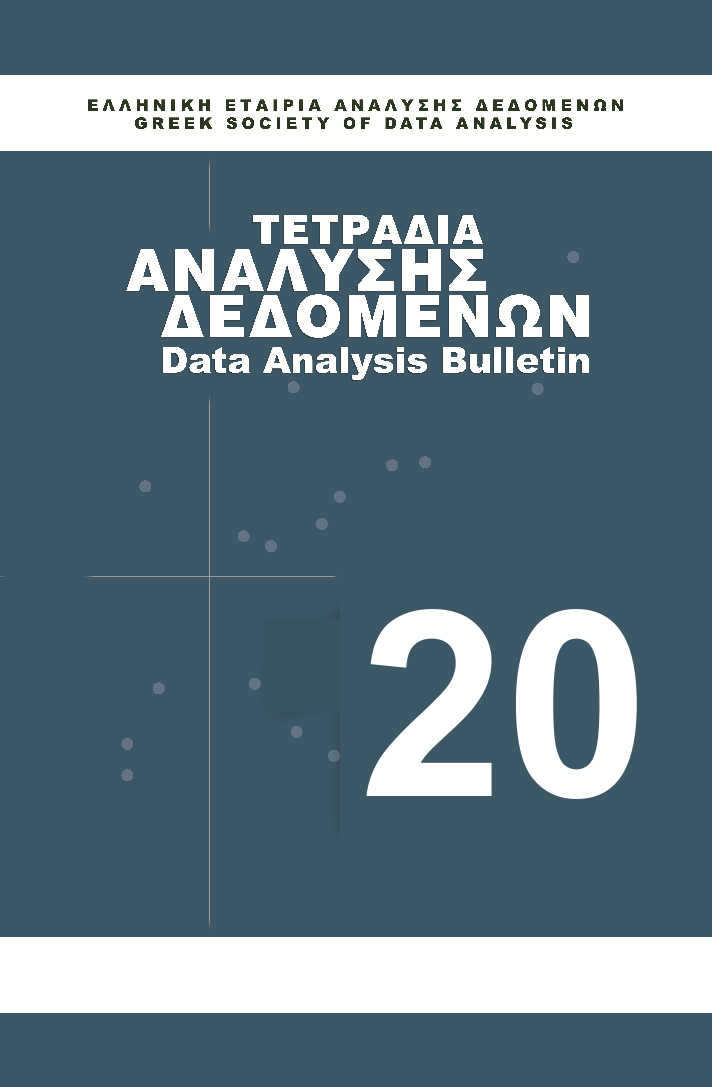The American Elections as context for the Game Theory application in strategic political marketing

Περίληψη
The American Elections attract always the interest of political marketing science. As elections they have been innovative with great appeal and their influence has a global perspective. The Game theory approach in political marketing inaugurates a new strategic prospect for the political competition. It combines and evaluates different political marketing strategies and show how they can affect the elections’ result. Game theory combines the models of conflict and cooperation for people whose decision-making is considered rational. We consider the political competition as a strategic game, where we have to identify the opposing players, the strategies used during the game and its rules. Using the game theory and the political marketing approach, our study examines the different strategies that politicians used during the American election of 2016, explaining how their strategy influences the result of the elections. We investigated mostly which approach on financial, social and environmental issues, security issues, immigration and international relations has the best results for the political parties. We measure the intensity of the candidates’ focus on these issues and we present game theory matrixes as examples to this innovative conceptual framework. This study presents a new conceptual approach that can be used for strategic political marketing design and campaigns.
Λεπτομέρειες άρθρου
- Πώς να δημιουργήσετε Αναφορές
-
Markaki, E., & Chadjipantelis, T. (2024). The American Elections as context for the Game Theory application in strategic political marketing. Τετράδια Ανάλυσης Δεδομένων, 20(1), 1–13. ανακτήθηκε από https://ejournals.epublishing.ekt.gr/index.php/dab/article/view/30576
- Ενότητα
- Εμπειρικές μελέτες

Αυτή η εργασία είναι αδειοδοτημένη υπό το CC Αναφορά Δημιουργού – Μη Εμπορική Χρήση – Όχι Παράγωγα Έργα 4.0 4.0.
Οι Συγγραφείς που δημοσιεύουν εργασίες τους στο περιοδικό ΤΕΤΡΑΔΙΑ ΑΝΑΛΥΣΗΣ ΔΕΔΟΜΕΝΩΝ συμφωνούν στους παρακάτω όρους:
- Οι Συγγραφείς δεν χρεώνονται με έξοδα υποβολής, επεξεργασίας ή δημοσίευσης των εργασιών τους. Τα κόστη αυτά καλύπτονται από την Ελληνική Εταιρία Ανάλυσης Δεδομένων.
- Τα πνευματικά δικαιώματα των εργασιών που δημοσιεύονται στο περιοδικό ΤΕΤΡΑΔΙΑ ΑΝΑΛΥΣΗΣ ΔΕΔΟΜΕΝΩΝ προστατεύονται από την άδεια Creative Commons Attribution-NonCommercial-ΝοDerivatives 4.0 International. Οι Συγγραφείς διατηρούν τα Πνευματικά Δικαιώματα και χορηγούν στο περιοδικό το δικαίωμα της πρώτης δημοσίευσης. Η άδεια αυτή επιτρέπει σε τρίτους - αποδέκτες της άδειας να χρησιμοποιούν την εργασία σε οποιαδήποτε μορφή μόνο για μη εμπορικούς σκοπούς. Αν οι τρίτοι τροποποιήσουν ή προσαρμόσουν το περιεχόμενο, οφείλουν να κοινοποιήσουν το τροποποιημένο περιεχόμενο for noncommercial purposes only. If others modify or adapt the material, they must license the modified material under identical terms.
- Με την προϋπόθεση της διατήρησης των διατυπώσεων που προβλέπονται στην άδεια σχετικά με την αναφορά στον αρχικό δημιουργό και την αρχική δημοσίευση στο περιοδικό ΤΕΤΡΑΔΙΑ ΑΝΑΛΥΣΗΣ ΔΕΔΟΜΕΝΩΝ.
- Οι Συγγραφείς μπορούν να συνάπτουν ξεχωριστές και πρόσθετες συμβάσεις και συμφωνίες για τη μη αποκλειστική διανομή της εργασίας όπως δημοσιεύτηκε στο περιοδικό ΤΕΤΡΑΔΙΑ ΑΝΑΛΥΣΗΣ ΔΕΔΟΜΕΝΩΝ (π.χ. κατάθεση σε ακαδημαϊκά καταθετήρια), με την προϋπόθεση της αναγνώρισης και την αναφοράς της πρώτης δημοσίευσης στο περιοδικό ΤΕΤΡΑΔΙΑ ΑΝΑΛΥΣΗΣ ΔΕΔΟΜΕΝΩΝ.
- Το περιοδικό ΤΕΤΡΑΔΙΑ ΑΝΑΛΥΣΗΣ ΔΕΔΟΜΕΝΩΝ Α επιτρέπει και ενθαρρύνει τους συγγραφείς να καταθέτουν τις εργασίες τους σε θεσμικά (π.χ. το αποθετήριο του Εθνικού Κέντρου Τεκμηρίωσης) ή θεματικά αποθετήρια, μετά τη δημοσίευσή τους στο ΤΕΤΡΑΔΙΑ ΑΝΑΛΥΣΗΣ ΔΕΔΟΜΕΝΩΝ και με όρους Ανοικτής Πρόσβασης, όπως κατά περίπτωση προσδιορίζονται από τους χρηματοδότες της έρευνάς τους ή/και τα ιδρύματα με τα οποία συνεργάζονται. Κατά την κατάθεση της εργασίας τους, οι συγγραφείς πρέπει να παρέχουν πληροφορίες σχετικά με τη δημοσίευση της εργασίας στο περιοδικό και τις πηγές χρηματοδότησης της έρευνάς τους. Κατάλογοι των ιδρυματικών και θεματικών αποθετηρίων ανά χώρα υπάρχουν στη βάση http://opendoar.org/countrylist.php. Οι συγγραφείς έχουν τη δυνατότητα να καταθέσουν χωρίς κόστος την εργασία τους στο αποθετήριο www.zenodo.org, το οποίο υποστηρίζεται από το OpenAIRE (www.openaire.eu ), στο πλαίσιο των πολιτικών της Ευρωπαϊκής Επιτροπής για την ενίσχυση της Ανοικτής ακαδημαϊκής έρευνας.


